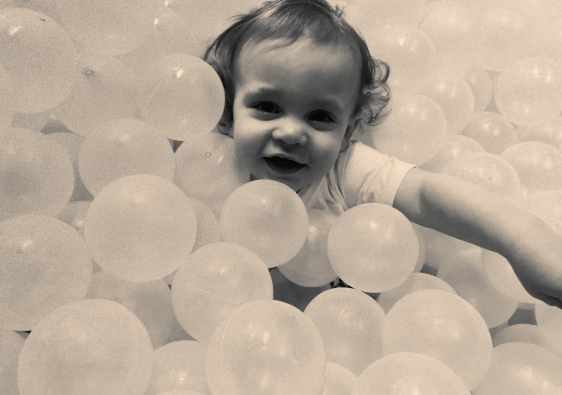Anxiety can be instigated by many factors. As “the most common of all mental disorders” (WHO, 2023, para. 2), it is important to consider how hormones can affect anxiety. We find hormones in food and even drinking water, so what is the relationship between the two? The short answer, hormones can instigate anxiety. Let’s find out how.
Hormones & Anxiety
Anxiety can be activated by psychological stress, physical stimuli, or physiological mechanisms (Singh, 2016). Examples include social situations and crowded or small spaces. Psychological stressors may include food or meal times, testing, public speaking, performance pressure, and separation for younger children. The shared basis for any category entails a perception of personal endangerment where survival is at risk (Singh, 2016).
Nutritional deficits, biological predispositions such as generational trauma, and even learned behavior can incline an individual to be prone to anxiety. Hormone imbalances too can play a role in anxious response patterns for individuals (Gorbis, 2023, Kundakovic & Rocks, 2022). Melatonin, estrogen, and cortisol may be three important hormones when it comes to anxious responses (Gorbis, 2023).
What Hormones Do in Our Bodies
Hormones impact individuals’ moods and mental health (Campbell & Jialal, 2022, Gorbis, 2023). Their role is to regulate systems within the body such as physiological development, emotional regulation, reproduction, and metabolism (Campbell & Jialal, 2022). Even digestion is regulated by hormones and has a clinically demonstrated impact on physical and mental well-being (Sing, 2016, Gorbis, 2023).
Some common processes hormones regulate include:
- Mood
- Growth
- Metabolism
- Reproduction
- Sleep
- Digestion
Hormonal Imbalances & Anxiety
Fluctuating estrogen, progesterone, and testosterone can impact anxiety (Palkhivala, 2001, Gorbis, 2023). Current treatment considerations for anxiety include hormone therapy (Palkhivala, 2011) due to this. So, just how does hormonal imbalance exacerbate anxiety symptoms? We will consider stress hormones like cortisol, adrenal hormones, and reproduction hormones to discuss the connection between hormonal imbalances and anxiety.
Stress Hormones & Anxiety
When an individual perceives they are in danger, the amygdala is activated and signals the hypothalamus (Harvard Health, 2020). Cortisol is released as a result. This stress response originates in the brain and results in a physiological response. Increased heart rate from contracted blood vessels is the body’s preparation to utilize muscle. Blood flow is averted from the brain to muscles for optimum flight or fight.
Possible symptoms of elevated cortisol levels include:
- Anxiety
- Depression
- Headaches
- Weight gain
- Sleep issues
- Elevated heart rate
- Lowered oxygen levels in the blood
- Tingling or numbness in the extremities
- Digestion difficulties
- Decreased energy
- Changes to menstrual cycles
Thyroid Hormones & Their Impact on Anxiety
Thyroid imbalances certainly can affect anxiety. Research has yet to conclude which is the instigating factor. Thyroid hormones are responsible for the central nervous system, affecting development. Whether elevated (hyperthyroidism) or lowered (hypothyroidism) anxiety and other co-morbid mental health diagnosis like depression result from the imbalance in 20-40% of patients (Bathla, Singh, & Relan, 2016). Greater thyroid issues result in more severe symptoms of anxiety.
Estrogen & Testosterone
Testosterone lowers anxiety (Stanikova et al., 2019). Both men and women have testosterone levels though women have an amount approximately 10% lower than males (Stanikova et al., 2019). Data demonstrates anxiety rates increase in male subjects when testosterone is reduced. Similarly, women with lowered testosterone levels are more likely to have anxiety (Stanikova et al., 2019).
There is some conflicting and limited research on estrogen and its connection to anxiety (Stanikova et al., 2019). Estrogen lowers anxiety (Kundakovich & Rocks, 2022, Hiller-Sturmhöfel & Bartke, 1998) according to some findings. However, Stanikova et al. (2019) demonstrated higher levels of both estrogen and separately, testosterone were related to anxiety symptomology. Regardless, more women statistically are affected by anxiety.
Hormonal Changes Across Life Stages
Hormone changes are one way that the body works to maintain “a constant internal environment” (Hiller-Sturmhofel & Bartke, 1998, para. 2). Hormones are one of the communication centers for the body and changes occur naturally throughout life stages (Hiller-Sturmhofel & Bartke, 1998). For individuals affected by symptomology of anxiety, a change in hormones may elicit a response.
Menstrual Cycle & Hormone Fluctuations
The menstrual cycle creates a variance in estrogen and progesterone levels (Kundakovic & Rocks, 2022). This, in turn, can impact anxiety levels for those with symptomology, before and post-menses onset. Anxiety levels increase during the menstrual cycle for women who have clinical psychiatric disorders (Handy et al., 2022). Handy et al. (2022) found that there is not a significant difference in the estrogen and progesterone levels between women with and those without anxious responses.
Menopause & Anxiety
Some studies show that as estrogen levels decrease, such as with menopause, anxiety may increase. Consideration of anxiety-related symptoms before menopause is essential to determine the relationship between menopause and anxiety. For women who have strong stress hormones and stress response, menopause can exacerbate this response pattern. Mitigating negative response habits through coping skills, stress reduction, and other strategies may prove helpful in navigating this season for women.
Identifying & Diagnosing Hormone-Related Anxiety
Medical consultation is important when considering the role of hormones and anxiety management. A baseline understanding of your particular hormone levels and needs can benefit you with the holistic treatment for anxiety and other mental health-related disorders. There are hormone-related treatments that obstetricians and gynecologists can offer. Endocrinologists or primary care providers can also support identifying and diagnosing hormone-related anxiety.
Non-Hormonal Strategies to Cope With Anxiety
There are many non-hormonal strategies to cope with anxiety. Many therapists and doctors may suggest this form of prevention/treatment initially and primarily. Utilizing these coping strategies can help some individuals with moderate to mild symptoms. Interestingly, coping skills are both treatment and preventative techniques to stave off anxious response patterns.
Some anxiety coping strategies include:
- Mindfulness and meditation: Meditation for anxiety and mindfulness exercises can help you remain grounded, reduce stress, and potentially prevent chest pain caused by anxiety. These coping strategies connect mind and body.
- Exercise: Exercise helps anxiety and may help reduce anxiety symptoms by reducing cortisol levels.
- Sleep hygiene: Sleep and anxiety are linked and how improving sleep hygiene can help reduce anxiety symptoms or their intensity.
- Play and creativity: One method to cope with anxiety is through play and creativity. Allowing oneself spontaneous (unplanned, unstructured) opportunities to tap into inner creativity can help reduce anxious symptomology (Abbing et al., 2019).
- Journaling: Journaling can be an effective method of processing emotions (Baikie & Wilhelm, 2005). Use a guided journal like The Balanced Mind to support healthy coping or use a simple notepad to express thoughts and feelings.
- Nutrition and health maintenance: Properly caring for your body includes routine check-ups with physicians or Primary Care Doctors. Healthy nutrition and quality caloric habits help with maintaining healthy body mass, which is related to anxiety levels (Stanikova et al., 2019).
- Social support: Caring for oneself through positive social connections and relationships helps minimize and buffer anxiety levels (Seppala, 2014). Offering support to others is equally beneficial for reducing stress and anxiety so consider regular volunteer roles in your community.
- Self-care and stress reduction: Self-care through relaxation and stress reduction methods like massage therapy, and pampering (in a spa, salon, or school where students offer reduced fee services) are legitimate ways to cope with and reduce anxiety symptoms.
Hormonal Treatments for Anxiety
Hormone replacement therapy is one option for some women who experience anxiety symptoms related to hormone dips, spikes, and cycles. Potential risks are related to the lack of evidence-based research showing best practices in hormonal therapy treatments (Fischer, Gleason, Asthana, 2014). For women who experience moderate to severe symptoms, the benefits could potentially outweigh negatives, including reducition of anxious response.
Anxiety Treatment Options
Anxiety, while not reversible, is manageable. Whether due to hormonal imbalance, traumatic events, or other factors, anxiety symptoms are treated through a variety of techniques. Treating the anxiety can involve somatic therapy, cognitive behavior therapy (CBT), dialectical behavior therapy (DBT), medication, mindfulness, psychedelic therapy, and other options.
Some common treatment options for anxiety include:
- Somatic therapy: Somatic therapy helps reduce anxiety by supporting the mind and body connection. Therapists skilled in this area recognize that the body needs to be physiologically supported as well. This approach will bring mindfulness and physical activities or exercises into the counseling room.
- Cognitive behavior therapy: CBT for anxiety helps reduce anxiety and is traditionally viewed as the gold star standard for treatment. Psychoeducation is rooted in the conviction that thoughts affect feelings which, in turn, affect behavior. Coping skills generally involve identifying distorted thoughts or automatic negative thoughts. Clients successfully progress through treatment by learning thought-interrupting and thought-challenging techniques.
- Dialectical behavior therapy: DBT for anxiety helps reduce anxiety similarly in psychoeducation as CBT. Psychoeducation revolves around the identification of instigating thoughts to unwanted behaviors. Coping skills incorporate behavior modification.
- Medication: Anxiety medication may help those who have severe anxiety symptoms. Anxiety medication can be long-term while others choose to seek medication as an immediate, but temporary, support while psychoeducation coping skills are developed.
- Mindfulness: Mindfulness for anxiety treatment combines breathwork and other techniques like grounding. Similar, with some distinctions to somatic therapy, mindfulness is a holistic approach for individuals in tune with their physicality. The approach is akin to a discipline.
- Psychedelic therapy: Healing through the use of psychedelics and ketamine-assisted therapy is one approach to treating anxiety. This is an at-home approach that combines the science of ketamine use with the treatment of anxiety.
- Meditation: Meditation could be considered with mindfulness, but many people feel cautious in bundling the two. Meditation generally may have roots in religious practices or views. Mindfulness is separate from religious practices.
- Relaxation: A good dose of R&R or self-care can help with managing anxious symptoms. When anxiety is related to stress, reducing personal stress is a legitimate coping skill for the management of symptoms.
When to Find Professional Help for Anxiety
It’s time to seek professional help for anxiety symptoms when it is interfering with daily life. Ongoing sleep issues, work performance problems, and interpersonal relationship issues can point to the need for professional treatment. Find a therapist by asking for a referral from a trusted doctor and from people you know who may have had similar struggles.
Directories can be helpful because they will help you narrow and refine a search for the best fit. Basic facts are listed in most online directories to help you compare the options. A mental health app like Noom Mood or Headspace can support anxiety management in the interim.
In My Experience
In my experience, holistic treatment approaches are ideal versus a singular approach. A holistic treatment for anxiety due to hormonal imbalances includes a full check-up from a primary care provider with blood panels. For some individuals with anxiety, medication management with the support of a trusted psychiatrist might assist in counseling.
Psychotherapy for anxiety treatment typically includes Cognitive Behavioral Therapy (CBT) and involves active learning and practice of coping skills. To maximize emotional regulation, it might be time to consider how nutrition, overall health hormones, and counseling might support your goals. Anxiety due to hormonal imbalance is manageable. Remember, you’re not alone in finding solutions that work well with your unique needs.
Interested in learning more?
Do you find the topic of increasing interest? Consider the following sources for additional reading.
An Overview of Women’s Mental Health: Anxiety, Depression, & More
Dare: The New Way to End Anxiety and Stop Panic Attacks Fast, by Barry MacDonagh
Declutter Your Mind: How to Stop Worrying, Relieve Anxiety, and Eliminate Negative Thinking, by S.J. Scott & Barrie Davenport
Article Sources
World Health Organization. (2023, September 27). Anxiety disorders. https://www.who.int/news-room/fact-sheets/detail/anxiety-disorders#:~:text=An%20estimated%204%25%20of%20the,all%20mental%20disorders%20(1).
Gorbis, E. (2023, May 2). Hormones, mental health, and the mind/body connection. Anxiety and Depression Association of America. https://adaa.org/learn-from-us/from-the-experts/blog-posts/professional/hormones-mental-health-and-mindbody
Kundakovic, M., & Rocks, D. (2022). Sex hormone fluctuation and increased female risk for depression and anxiety disorders: From clinical evidence to molecular mechanisms. Front Neuroendocrinol (66). 10.1016/j.yfrne.2022.101010
Campbell, M., & Jialal, I. (2022, September 26). Physiology, endocrine hormones. National center for biotechnology information. https://www.ncbi.nlm.nih.gov/books/NBK538498/#article-814.s3
Beck, T. (2012, August 9). Estrogen and female anxiety. The Harvard gazette. https://news.harvard.edu/gazette/story/2012/08/estrogen-and-female-anxiety/
Palkhivala, A. (2001, October 8). Hormones for your head. WebMD. https://www.webmd.com/balance/features/hormones-for-your-head
Harvard Health. (2020, July 6). Understanding the stress response. https://www.health.harvard.edu/staying-healthy/understanding-the-stress-response
Bathla, M., Singh, M., & Relan, P. (2016). Prevalence of anxiety and depressive symptoms among patients with hypothyroidism. Indian journal of endocrinology and metabolism, 20(4), 468–474. 10.4103/2230-8210.183476
Stanikova, D., Luck, T., Pabst, A., Bae, Y. J., Hinz, A., Glaesmer, H., Stanik, J., Sacher, J., Engel, C., Enzenbach, C., Wirkner, K., Ceglarek, U., Thiery, J., Kratzsch, J., & G., S. (2019). Associations Between Anxiety, Body Mass Index, and Sex Hormones in Women. Frontiers in Psychiatry, 10, 466996. 10.3389/fpsyt.2019.00479
Hiller-Sturmhöfel, S., & Bartke, A. (1998). The Endocrine System: An Overview. Alcohol Health and Research World, 22(3), 153-164. https://www.ncbi.nlm.nih.gov/pmc/articles/PMC6761896/
Handy, A. B., Greenfield, S. F., Yonkers, K. A., & Payne, L. A. (2022). Psychiatric Symptoms Across the Menstrual Cycle in Adult Women: A Comprehensive Review. Harvard review of psychiatry, 30(2), 100–117. https://doi.org/10.1097/HRP.0000000000000329
Abbing, A., Baars, E. W., de Sonneville, L., Ponstein, A. S., & Swaab, H. (2019). The Effectiveness of Art Therapy for Anxiety in Adult Women: A Randomized Controlled Trial. Frontiers in psychology, 10, 1203. https://doi.org/10.3389/fpsyg.2019.01203
Baikie, K. A. & Wilhelm, K. (2005). Emotional and physical benefits of expressive writing. Advances in Psychiatric Treatment. 11(5):338-346. 10.1192/apt.11.5.338
Seppala, E. (2014, May 8). Connectedness & health: The science of social connection. Stanford medicine. https://ccare.stanford.edu/uncategorized/connectedness-health-the-science-of-social-connection-infographic/#:~:text=People%20who%20feel%20more%20connected,trusting%20and%20cooperating%20with%20them.
Fischer, B., Gleason, C., & Asthana, S. (2014). Effects of hormone therapy on cognition and mood. Fertility and sterility, 101(4), 898–904. https://doi.org/10.1016/j.fertnstert.2014.02.025
Featured Image:
Ratoca. (n.d.). Anxiety (211127302). https://www.dreamstime.com/creative-design-anxiety-illustration-image211127302




